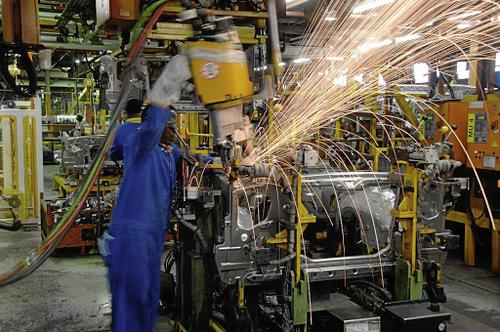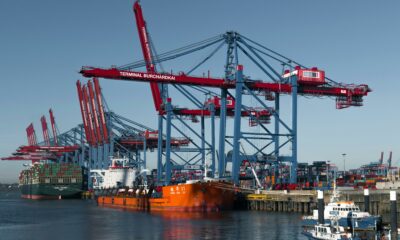Business
Trade Unions Sound Alarm as South Africa’s Manufacturing Crisis Deepens

South Africa’s manufacturing sector is in decline and with it, jobs are disappearing. In response to alarming new data from Statistics South Africa (Stats SA), both the South African Federation of Trade Unions (Saftu) and the Congress of South African Trade Unions (Cosatu) have issued strong warnings about the deepening crisis and its impact on workers.
According to Stats SA, manufacturing production fell by 0.8% in March 2025 compared to the same month in 2024. This marks the fifth consecutive monthly decline. Major contributors to the drop include petroleum, chemical, rubber and plastic products, and electrical machinery.
On a broader scale, the first quarter of 2025 saw a 2.3% decline in manufacturing output compared to the previous quarter. March alone showed a 2.2% drop from February, signalling a worrying downward trend.
“This is not a blip—it’s a long-term pattern of deindustrialisation,” said Saftu General Secretary Zwelinzima Vavi.
Vavi pointed to a decades-long erosion of South Africa’s industrial base. Since 1994, manufacturing’s share of GDP has shrunk from 22% to just over 11%, and capacity utilisation has fallen from 82% to 65%.
Investment levels paint a bleak picture. Saftu highlighted that Gross Fixed Capital Formation sat at 14.93% of GDP in 2023, far below the 20% levels of the early 2000s. Private sector investment accounted for 12.37%, while public sector investment was a mere 2.5%.
“Both the state and private capital have effectively retreated from investing in the productive economy,” Vavi said. “If you factor in aluminum and steel, the deindustrialisation is even worse.”
Adding fuel to the fire, US President Donald Trump’s tariff policies could hammer the sector further. Vavi warned that punitive tariffs are likely to resume when the current 90-day reprieve on South Africa’s 32% tariff penalty ends in July.
He also voiced concerns over South Africa’s diplomatic stance particularly on Israel, land reform, and affirmative action—which could strain relations with Washington and jeopardise the renewal of the Africa Growth and Opportunity Act (AGOA).
“South Africa cannot overcome its economic crisis through austerity or appeasement. We need a bold shift to a developmental state, one that drives investment, industrialisation and puts public good above private profit,” said Vavi.
Cosatu echoed the concerns but also urged a more pragmatic approach to trade policy.
“Government must push for the continuation of AGOA or a similar trade agreement, while also building stronger ties across Africa through the African Continental Free Trade Area (AfCFTA),” said Cosatu spokesperson Zanele Sabela.
Cosatu called for urgent infrastructure reforms—particularly at Eskom, Transnet, and Metro Rail—to support the economy and restore confidence.
“We also need a mass industrial financing programme that brings together public and private resources to drive job-intensive, export-oriented reindustrialisation,” said Sabela.
Meanwhile, the country’s expanded unemployment rate remains a staggering 41.9%, underscoring the human cost of industrial decline.
As South Africa’s economic challenges mount, trade unions are pushing back against what they see as policy inertia. Whether government and business leaders respond with the urgency required remains to be seen.
{Source: IOL}
Follow Joburg ETC on Facebook, Twitter , TikTok and Instagram
For more News in Johannesburg, visit joburgetc.com



























